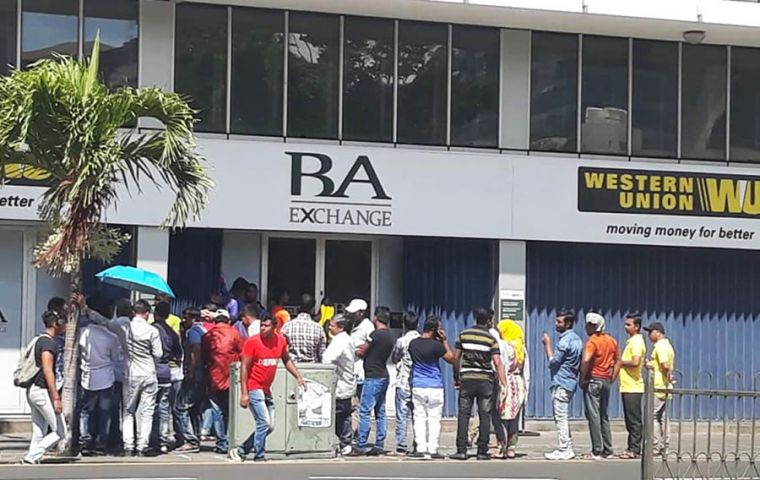MercoPress. South Atlantic News Agency
Record money transfers to developing countries in 2018, but transfer costs too high claims World Bank
 Migrant workers and others sent home an estimated US$ 529 billion to low- and middle-income countries last year, up 9.6% from the year before
Migrant workers and others sent home an estimated US$ 529 billion to low- and middle-income countries last year, up 9.6% from the year before  Such money transfers should hit US$ 550 billion this year, making them the largest source of external finance, according to the bank.
Such money transfers should hit US$ 550 billion this year, making them the largest source of external finance, according to the bank. Money transfers to poor and developing countries hit a fresh record in 2018 and should become their largest source of external financing this year, the World Bank said on Monday. But many banks and money transfer operators charged too much, cutting into the gains of migration, the bank said in a statement.
Migrant workers and others sent home an estimated US$ 529 billion to low- and middle-income countries last year, up 9.6% from the year before, which had also been a record.
Such money transfers should hit US$ 550 billion this year, making them the largest source of external finance, according to the bank.
Money transfers were up 12% to US$ 131 billion for South Asia and almost seven percent for East Asia, reaching US$143 billion. Sub-Saharan Africa saw a 10% increase at US$46 billion, according to the bank.
The United States economy grew strongly while outbound flows from Gulf countries and Russia also rose, according to the bank, which said explained much of the gains.
Excluding China, the remittances amounted to US$ 462 billion, significantly more than foreign direct investment over the period, which stood at US$ 344 billion.
Among development goals set by the United Nations in 2015 was reducing the cost of remittances to 3%. However, banks on average were charging 11% in the first quarter of 2019 while post offices charged 7%.
“The high costs of money transfers reduce the benefits of migration,” Dilip Ratha, the report's lead author, said in a statement.
“Renegotiating exclusive partnerships and letting new players operate through national post offices, banks and telecommunications companies will increase competition and lower remittance prices.”
Another factor making money transfer costs rise are banks' efforts to avoid money-laundering and terrorism finance. Some banks simply cease working with some money transfer organizations deemed too risky, according to the report.
“Banks indicate that risks to their reputation ... deter them from having correspondent bank accounts,” it said.




Top Comments
Disclaimer & comment rulesCommenting for this story is now closed.
If you have a Facebook account, become a fan and comment on our Facebook Page!